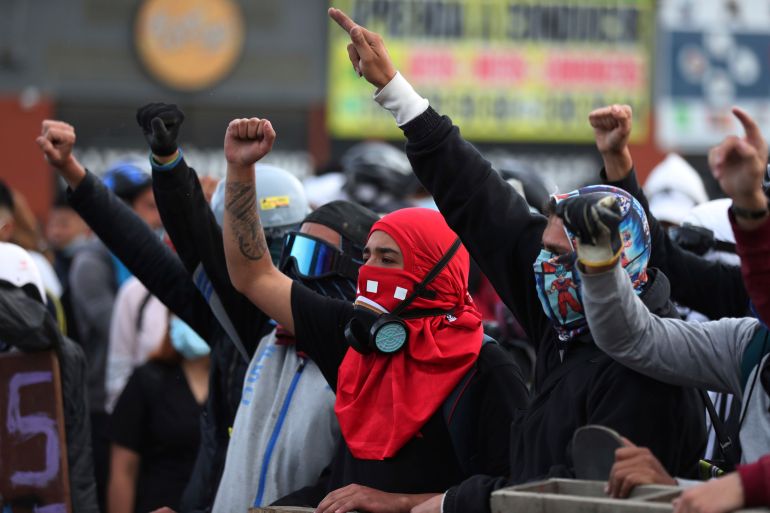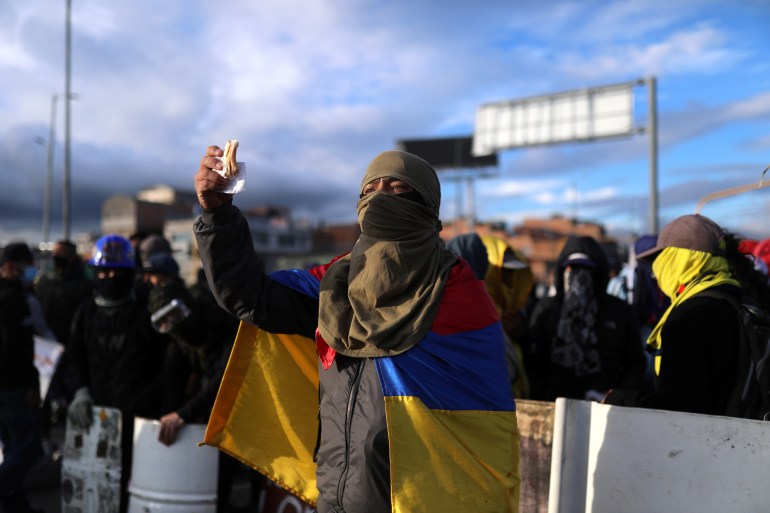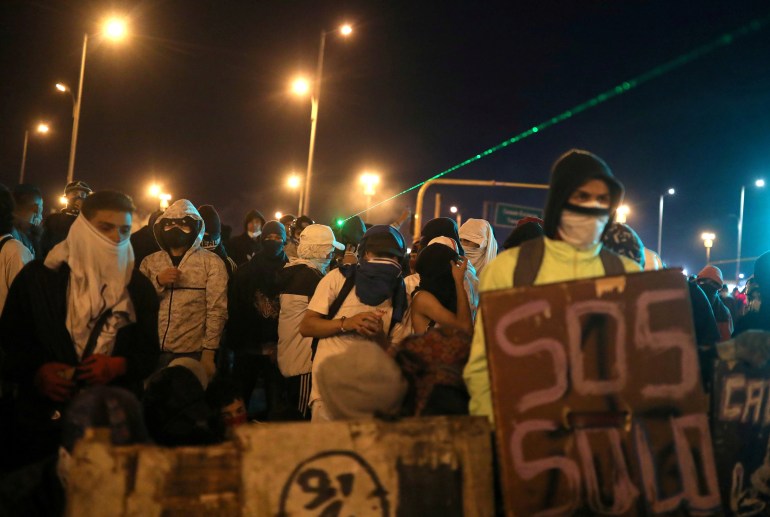Amid protests, Colombian cities brace for more COVID infections
The capital, Bogota, is confronting a ‘hospital collapse’ and infections will not drop until end of May, the mayor said.

Colombia’s three largest cities are bracing for an extended third peak in coronavirus cases and over-stretched intensive care units after nearly two weeks of anti-government protests, local authorities said.
Demonstrations fuelled by outrage at a now-cancelled tax plan began on April 28. Protesters’ demands have expanded to include a basic income, an end to police violence and the withdrawal of long-debated health reform.
Keep reading
list of 3 itemsThe Colombian exiles seeking refuge in Spain
In Pictures: Deadly protests in Colombia
Marches look set to continue for the foreseeable future, with protest leaders and the government at odds despite an initial meeting to discuss the demands.
The first meeting between Colombia’s president Ivan Duque and the National Strike Committee ended on Monday without an agreement between the parties.

Violence during some demonstrations has resulted in the deaths of 26 people, including a police officer, and more than 800 people injured, according to government figures. Human rights organisations, which have denounced numerous police abuses during protests, say the death toll is higher.
Meanwhile, the capital Bogota is confronting a “hospital collapse,” Mayor Claudia Lopez said in a press conference on Monday, and will not see infections drop this week as previously predicted.
“The pact of care that has safeguarded us from contagion for 16 months is what was broken in Colombia two weeks ago,” Lopez said. “Every day it is broken, we are exposed to a risk of mass death. To be at 96 percent ICU occupation is to be on the brink of hospital collapse.”
A decrease in infections will not come until the end of May, Lopez said, adding that protests make quarantine restrictions nearly unenforceable, though she extended a curfew and restrictions on alcohol sales.

Medellin, whose ICUs have been at or near full capacity for weeks, is preparing for a possible crisis, health secretary Andree Uribe told Reuters in a video.
“We know there will be an increase in cases, we’re on alert, we are carrying out actions for early identification, like testing everyone who participated in the marches,” she said.
In Cali – a protest focal point – demonstrations are likely to extend a current peak, health secretary Miyerlandi Torres said.
“We’re worried about marchers who don’t comply with any of the self-protection protocols like physical distancing and the use of face masks,” she said.
“And with the presence of strains like the British one, which are highly contagious, it’s indicated the figures won’t fall in the short term.”
Cali’s ICUs are about 95 percent occupied, according to local government figures.